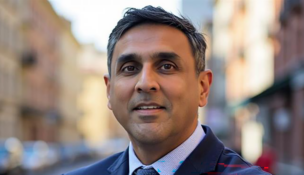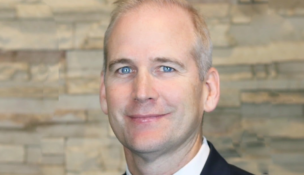U.Va. board to meet over gender-affirming care dispute
UVA Health has resumed treatments, despite AG's views
Kate Andrews //February 19, 2025//

University of Virginia Rotunda. Photo courtesy University of Virginia

University of Virginia Rotunda. Photo courtesy University of Virginia
U.Va. board to meet over gender-affirming care dispute
UVA Health has resumed treatments, despite AG's views
Kate Andrews //February 19, 2025//
The University of Virginia‘s Board of Visitors — now controlled by members appointed by Gov. Glenn Youngkin — has scheduled a Feb. 21 special meeting to discuss UVA Health‘s decision to resume gender-affirming medical care for patients under the age of 19.
The university-affiliated health system suspended treatments in late January after a federal executive order, followed by a directive from Virginia’s attorney general, but it restarted care after a federal order last week.
Friday’s meeting is set to be a showdown between university administration and conservative-leaning board members over the hot-button issue concerning whether transgender minors can receive gender-affirming medical treatments at UVA Health, even with their parents’ permission.
A group of U.Va. faculty, alumni and UVA Health physicians, nurses and clinical staff have sent an unsigned letter to the university’s board ahead of the meeting, arguing that “preemptive compliance” with executive orders that run contrary to state and federal law “would invite significant legal liability” for the university. The group calls for gender-affirming treatments to continue. A copy of the letter was provided to Virginia Business.
The matter has become a partisan issue ignited by President Donald Trump‘s Jan. 28 executive order banning all gender-affirming medical treatment for patients under 19, even in Virginia, where the Virginia Human Rights Act in the state code explicitly protects people from discrimination related to their gender identity. Despite the state law, Youngkin and Virginia Attorney General Jason Miyares, both Republicans, have voiced support for the executive order’s limitations on medical care, and Miyares issued a directive to UVA Health and VCU Health enforcing the order last month.
Both health systems suspended gender-affirming medical treatment for patients under 19 on Jan. 30, citing Trump’s executive order and Miyares’ interpretation. However, after a federal judge issued a two-week restraining order on Feb. 13 that suspended Trump’s executive order, UVA Health and VCU Health took different paths.
UVA resumed treating patients immediately, and VCU Health and its affiliated children’s hospital did not. Both are public health systems with financial ties to the state, but with different leaders and governance structures. Also, VCU’s Feb. 14 statement acknowledges the direct involvement of the governor’s office in its decision not to resume treatment.
VCU Health and the Children’s Hospital of Richmond at VCU, which are overseen by the VCU Health Systems Authority board, “have received verbal guidance from the governor’s office that the Virginia attorney general’s prior directive that prohibits gender-affirming services outlined in the White House’s executive order still stands,” the statement said.
But on the evening of Feb. 13, UVA Health issued a statement that it would “resume the provision of those services that were previously paused in response to the order. UVA Health will continue to monitor legal developments in this case and provide our patients with the best care possible under Virginia and federal law.”
Much of the U.Va. board’s discussion Friday will take place in closed session, according to the agenda, and the meeting will include “consultation with legal counsel and legal advice” regarding the BOV’s authority to “make regulations and policy concerning the university; the university’s posture regarding compliance with executive orders and the potential impact on the business of the medical center.”
Legal opinions
Miyares’ Jan. 30 memo lays out some of the potential perils of defying the president’s executive order: “Any hospital or other institution … is at risk of losing” federal research or education grants, and “may involve Medicare or Medicaid conditions of participation/coverage.”
But U.Va. law professor Craig Konnoth, who specializes in health and LGBT civil rights law, said Tuesday that “it was illegal” for Virginia’s hospital systems “to stop gender-affirming care,” even after the president’s executive order.
Calling it “basic civics,” Konnoth said the federal executive branch — i.e., the president — doesn’t create laws or serve as final arbiter for the interpretation of laws.
Meanwhile, “the law was already settled in the state,” both under the Virginia Human Rights Act and under federal law, and those statutes have been supported in court, he added. “The executive order has no legal weight. Congress has spoken. The courts have spoken.”
With regard to Miyares’ memo, Konnoth said, “The attorney general issued a letter that summarized the executive order. You notice the attorney general doesn’t say anything about what the law is. He just says, ‘This is the executive order. Follow it.’”
The faculty, alumni and staff members’ letter to the board members includes similar arguments, citing the Virginia Human Rights Act, the Affordable Care Act, Title VI of the Civil Rights Act of 1964 and Title IX of the Education Amendments of 1972.
“To prohibit the provision of specific medical and surgical treatments to transgender minors, but not cisgender minors, is illegal discrimination,” the letter states. “To abruptly terminate gender affirming care, absent any binding legal requirement to do so, is medical abandonment. Given the high likelihood that patients will suffer harm as a result (severe psychological distress, worsening gender dysphoria, depression, or even suicide), this action would invite medical malpractice claims and create significant civil liabilities for the University and its health system.”
Despite what Konnoth and others view as settled law, Trump has made assertions in his second term that nothing he does as president is in violation of the nation’s laws or Constitution. On Sunday, he posted the following statement on his Truth Social feed: “He who saves his Country does not violate any Law.”
However, there are political considerations, aside from the law, leaving questions about what could occur Friday. Two-thirds of U.Va.’s board members, who have hiring and firing authority over the university’s president, Jim Ryan, are Youngkin appointees, although the board’s rector and vice rector were both appointed by Youngkin’s predecessor, Gov. Ralph Northam, a Democrat.
Meanwhile, UVA Health is overseen by a committee under the purview of the university’s board of visitors, and it includes seven board members and five “public members” named by the BOV. UVA Health CEO Dr. Craig Kent answers to Ryan, and both men are state employees.
Upon taking office in 2022, Miyares fired U.Va.’s former general counsel, Tim Heaphy, who worked for the university for about three years and was on temporary leave while serving as lead investigator for the U.S. House of Representatives’ Jan. 6 committee.
Miyares hired Cliff Iler to replace Heaphy, and Iler remains the university’s top lawyer and an employee of the state attorney general’s office. Iler is likely to be the attorney offering legal guidance to the board Friday in closed session.
This sets up an apparent battle of wills over the resumption of medical care for transgender teens at U.Va., services that include prescriptions for puberty blockers, hormone treatments and referrals for surgical procedures.
Konnoth predicts, “The board of visitors, I assume, will go ahead and follow the law,” and endorse UVA Health’s resumption of gender-affirming medical services.
“At the end of the day, if you’re an American, you believe that the laws of the country should be followed. I would expect that to be the case whether you’re appointed by a Democrat or Republican.”
e

















